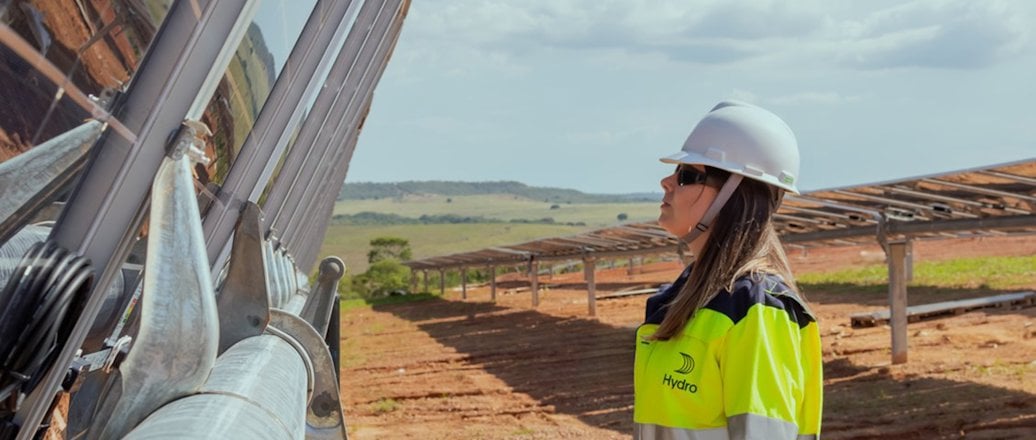Our opportunities
Our mission is to enable decarbonization and electrification of society and industries by developing and operating renewable energy, by using wind, solar- and hydropower. Energy storage solutions are also necessary for the green transition. Our battery- and hydrogen ventures support society with more flexible use of renewable energy and electrification of the transport sector, enabling energy efficiency and stability of energy supply.
Addressing our opportunities in a responsible way
We acknowledge that no energy production or consumption comes without impact. New renewable energy developments require land use, which can have potential negative implications on nature and communities. These are some of the most important challenges in the energy transition.
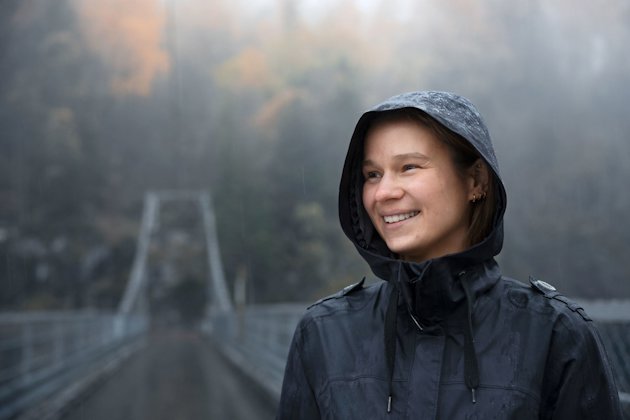
Hydro Energy is committed to work according to high standards of social- and environmental responsibility and to have a positive influence where we operate. We shall address and work proactively to reduce the environmental and social impacts of our renewable projects, as well as around our existing hydropower operations.
We also acknowledge that being in the frontline of the renewable energy transition requires that we rely on new and complex supply chains. It is our responsibility to manage these in a transparent and risk-based manner to minimize indirect environmental and social impacts. We work to ensure that due diligence is performed across the entire value chain, and to mitigate any identified risk. As an example, Hydro Energy works actively together with industry associations, nationally and internationally, to address sustainability challenges in the renewable energy sector.
Climate
Whilst producing renewable and emission free energy is the core of what we do, Hydro Energy’s role is to decarbonize Hydro’s industrial activities as well as enabling a wider energy transition for society. As one of Norway’s largest producers of renewable energy, our hydropower operations provide around 10 TWh of renewable energy annually for our Norwegian aluminum production. Globally, our strategy is to continue growing in renewables and cut GHG emissions through Hydro Rein, Hydro’s renewable energy venture. Hydro Rein is a leading provider of renewable energy solutions to industrials, with a diversified portfolio of more than 40 renewable energy projects (wind- and solar) under development in core markets in the Nordics and Brazil, in addition to a significant pipeline of Energy Solutions projects in Europe and North America.

More renewable energy means that energy systems become increasingly complex, as peaks of energy production will occur when wind, sun- or hydropower production are at maximum, and more flexibility in the energy system is needed. As part of our strategy towards 2030 we seek to add flexibility to the energy system through optimizing our hydropower production.
In all our hydropower locations we explore opportunities for upgrading and expanding our hydropower operations. In addition, we will look into developing new projects such as pumped storage hydropower. We are also developing energy storage solutions (batteries) and enabling decarbonization through industrial use of green hydrogen.
Despite decarbonization efforts, there are still direct and indirect greenhouse gas emissions (GHG emissions) from operations and construction activities. To take responsibility for our indirect GHG emissions, we work in several ways to identify and reduce our footprint. Hydropower reservoirs may increase natural emissions of methane, a greenhouse gas, due to flooding of land. We work together with research and peers for a better understanding of these methane emissions.
The aluminium industry is responsible for 2 per cent of the world’s emissions. To reach global climate targets, we need to decarbonize energy systems, produce for circularity, and recycle resources already in use. Recycling aluminium requires 95% less energy than when producing aluminium the first time. This makes it an ideal metal for the circular and low-carbon economy. Electrification is not an option for industrial high heat processes such as aluminium remelting. To reduce GHG emissions, green hydrogen is the most mature option for replacing natural gas in processes that require high temperatures. In 2023, Hydro successfully produced the world’s first aluminium batch using green hydrogen as a fuel and has proven the technical feasibility of recycling aluminium with zero emissions.
Environment
Land use and land use change, an often-necessary effect of renewable energy developments, pose some of the greatest risks to loss of biodiversity. Hydro Energy is committed to address and reduce our impact to biodiversity. For all new majority owned projects, Hydro Energy is committed to No Net Loss of priority biodiversity features. This includes working according to the biodiversity mitigation hierarchy to avoid, minimize, restore, and compensate our impacts on priority biodiversity features. For new projects, we are also committed to voluntary exclusion zones and shall not develop new projects in UNESCO World Heritage Sites or legally protected areas listed as IUCN category 1-4.
Hydro Energy addresses biodiversity impacts through a scientific approach and we have engaged third-party specialists and research institutions with understanding of impact mitigation. Hydro Energy has established a long-term collaboration with NINA to get support with understanding our impacts and implementing the biodiversity mitigation hierarchy in new projects in Norway.
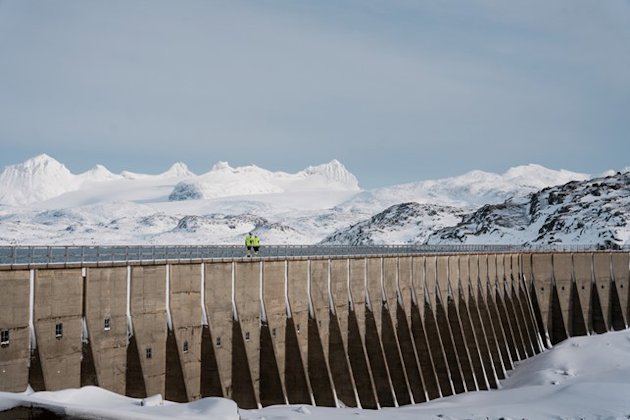
We have a particular responsibility for the water bodies that we impact in our hydropower operations. We work with rehabilitation- and restoration measures as well as improvement of ecological habitats in the waterways we regulate. We continuously monitor and simulate water levels and adapt the production, which helps mitigate consequences of extreme weather events, particularly flooding.
As we actively invest in and develop projects in the battery value chain, we also acknowledge the environmental and social impacts from mining, extraction and processing of necessary metals and minerals for battery production. Circularity is a key to how we approach the business opportunities in the battery sector, and a prerequisite considering the new regulatory requirement in the EU.
Hydro Energy is carrying out biodiversity risk assessments for all our majority owned hydropower operations. The risk assessments are carried out by a third party to identify main risks to priority biodiversity features impacted by our operations. We aim to finalize these assessments for all of Hydro Energy’s majority owned operations by end of 2025. We plan to establish Biodiversity Action and mitigation activities for our operations, based on the highest risks to biodiversity.
From 2017 to 2022, Hydro Energy restored parts of the river Måna in Rjukan, Norway. Due to hydropower operations, the river was previously dry for most of the year and work was carried out to re-establish a natural river. The target was to ensure a minimum water flow, maintain a good flood management control and to improve the conditions for migratory fish. In addition, steady water flow in the river is an important element for recreational purposes, including for the local communities and visiting tourists. Hydro Energy worked together with a river biologist to ensure a continuous water stream. The existing riverbanks were left as before, and only natural building materials, rocks and gravel, were used in the restoration work.
Hydro has, together with Northvolt, established Hydrovolt, with the purpose of a full-scale battery recycling facility in Europe. With a clean and innovative approach, Hydrovolt recovers valuable metals and other materials from batteries which can be circulated back into the manufacturing of new products to provide a sustainable solution for end-of-life management of batteries and contribute to a circular economy. The first plant, in Fredrikstad in Norway, will recycle over 12,000 tons of battery packs every year once fully operational and is currently ramping up production.
Social responsibility
Hydro Energy is working towards a transition to a low-carbon economy that also provides a just transition, where job creation and decent work is ensured. Our aim is to contribute to the development of local communities where we operate. and aims to contribute to the development of local communities where we operate. Hydro’s social ambition - to improve lives and livelihoods wherever we operate, and respecting, supporting and promoting human rights - is shared with Hydro Energy, and we support this by through the following key activities;
- Successful stakeholder inclusion and dialogue,
- Contribute to internal and external up- and reskilling,
- Continuously work towards more sustainable business practices,
- Ensure transparency and responsible business practices in our supply chain.
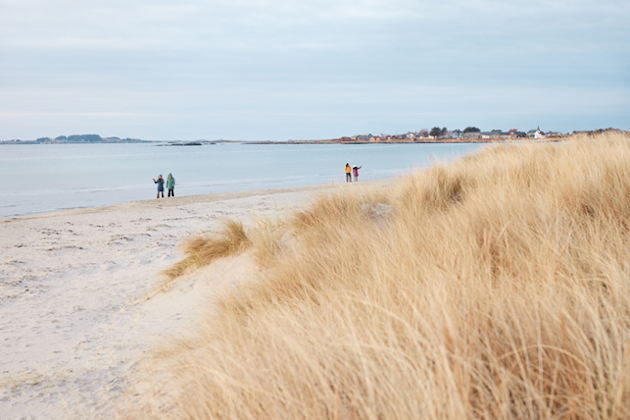
In operations
As part of our commitment to respect, support and promote and respecting human rights, we systematically evaluate our potential impacts on society, (people’s rights), local communities and in our supply chain. seeking opportunities for positive effects for interested and affected stakeholder groups.
In new projects or major investments
Before new projects or expansions are undertaken, we aim to conduct risk-based environmental and social impact assessments when relevant, which include evaluating risks for adverse human rights impacts. We are guided by The International Finance Corporation Performance Standards on Environmental and Social Sustainability, Equator principles and UN Guiding Principles on Business and Human Rights in doing so. Dialogue with affected groups gives input to plans, detailing our environmental and social responsibilities. We strive to act in an open and credible manner, and gather views from interested parties, aiming for a common understanding of the decisions that are made.
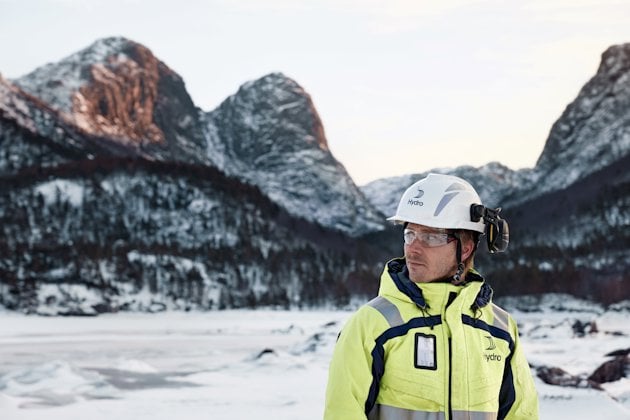
The green transition requires materials that are often sourced in regions with lower sustainability standards. Hydro’s renewable energy ventures work to ensure solid due diligence and securing transparency in our supply chains. All direct suppliers are subject to a qualification process, including mapping of human rights related risks such as forced labour. However, due to the many levels of supplies and complex supply chains in the renewables sector, there are inherent high-risk value chains related to sustainability challenges, especially forced labour. We acknowledge that this is a real challenge requiring on-going long-term efforts.
Møsvatn is the main water reservoir for all of Hydro’s hydropower plants in Telemark. This is Norway’s fourth largest hydroelectric power reservoir, with an energy content corresponding to approximately 2,300 gigawatt-hours. Hydro in Telemark has a proud tradition of including and engaging the households around the lake in our work. This is done to ensure safe surroundings, accessibility, and transportation routes. The households close to the lake are closely affected and determine the appropriate measures. Hydro Energy in Telemark has gone beyond the licensing requirements to ensure livelihood around the lake. Examples include facilitating and building new roads, ramps and piers as well as managing erosions. All with the aim of ensuring that households and families can settle and live their lives around the lake.
Hydro Rein works to create positive social impact through developing renewable energy projects in consultation with local communities. Ventos de São Zacarias (VSZ) is a wind project in the Northeast of Brazil, located close to two self-declared traditional communities known as Quilombola Communities (QCs). The project held Free Prior and Informed Consent (FPIC) processes in both communities, which resulted in mitigating actions and negotiations. Key outcomes include the construction of a headquarter and refurbishment of the church in QC Serra da Mata Grande and the refurbishment of QC’s Serra dos Rafaéis church. We still engage in regular communication and consultation with the communities. This includes relevant social activities held by the project, such as the agricultural technical support program. This program was designed to further encourage regional marketing of products made with manioc, which is the main source of income in the region and in those 2 QCs.
In Hydro Rein’s solar project Mendubim, we have performed 3rd party chain of custody audits and full internal due diligence on supplier, with screening of sub-suppliers to get a better overview of where the material inputs originate. This was done together with our partners Scatec and Equinor. Based on the same approach as a quality management system, there have been requirements to the solar panel supplier to verify the origin of certain materials and to provide full access to audit all affiliated cell manufactures and certificates of origin from non-affiliated ones. However, there is a lot more work which needs to be done to get better control and insight into the complex value chains of solar panels and batteries. Hydro Energy is looking into how to strengthen our efforts and engaging in industry-wide cooperation on this topic.
Atnaujinta: 2024 m. kovo 1 d.







